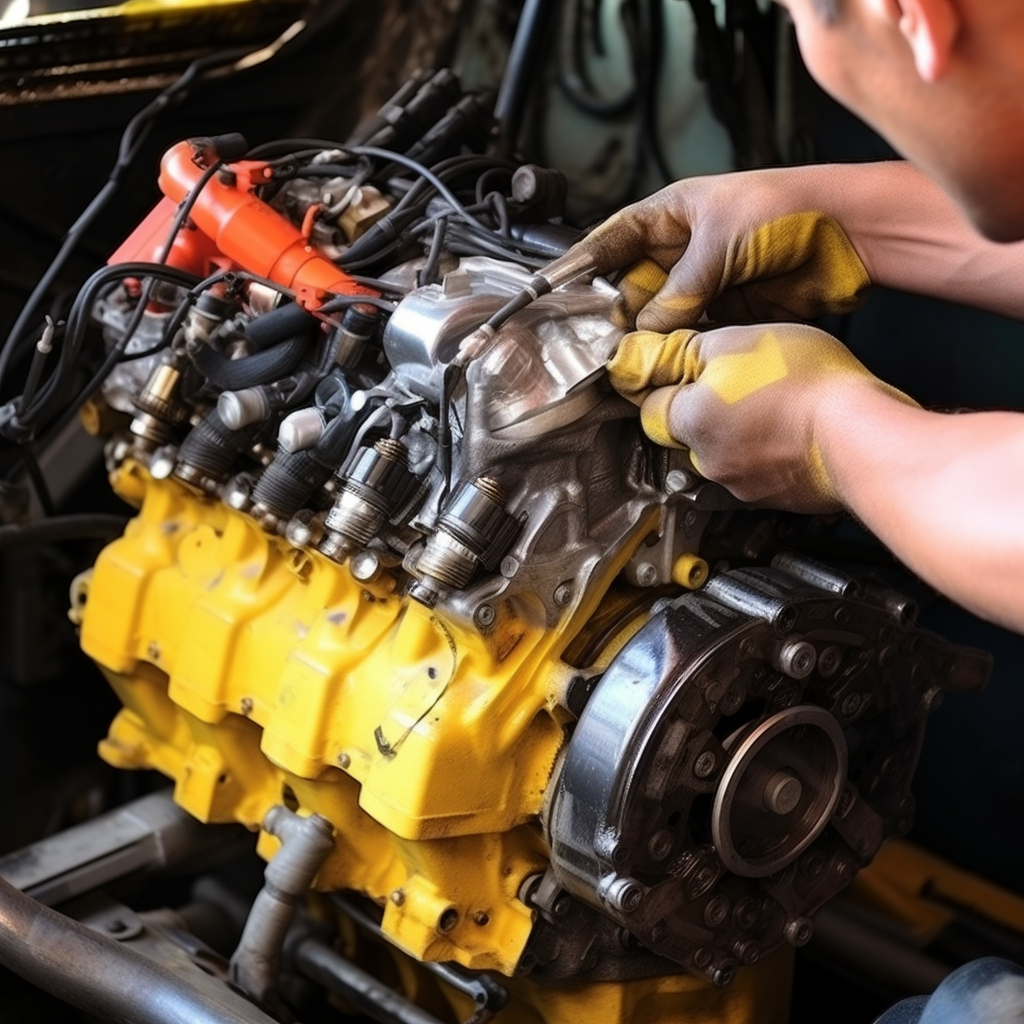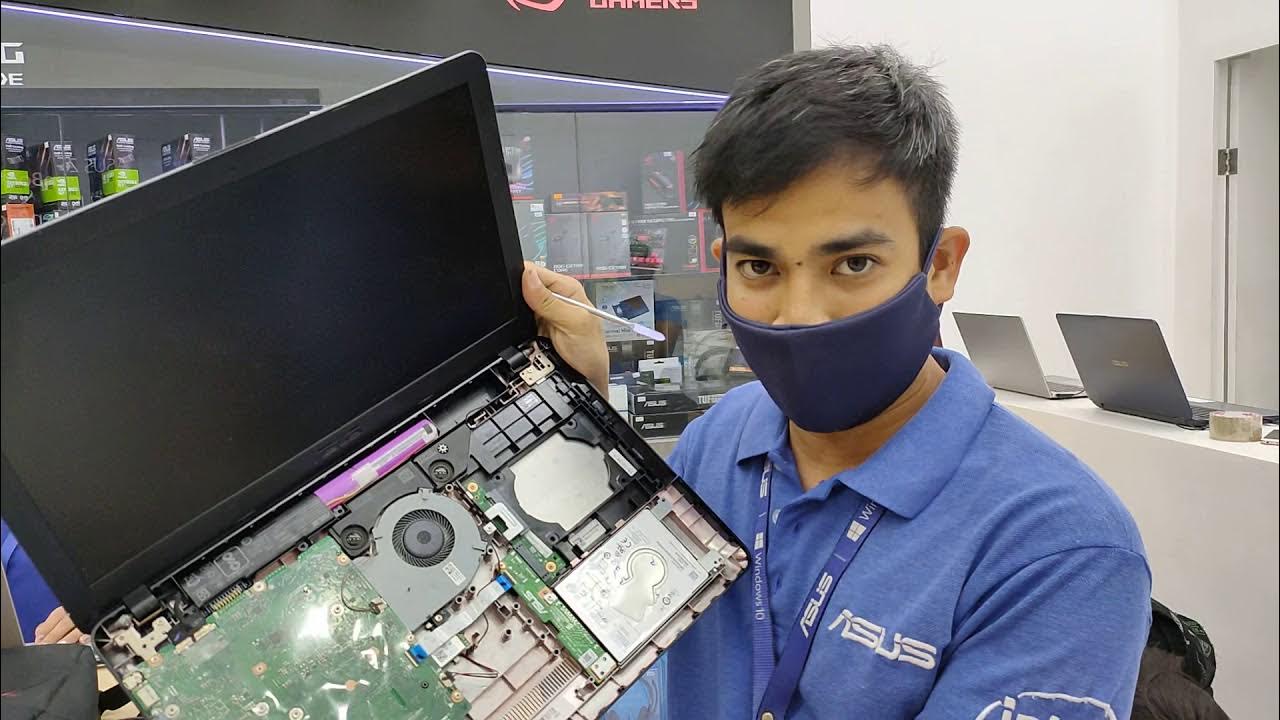To become a diesel mechanic, you need to complete a diesel technician program or earn an associate degree in diesel technology. Additionally, gaining hands-on experience through apprenticeships or on-the-job training can enhance your skills and job prospects.
With proper education and practical knowledge, you can start a career as a diesel mechanic and work on repairing and maintaining diesel-powered vehicles and equipment. Are you intrigued by the inner workings of vehicles and have an affinity for diesel-powered engines?
If so, pursuing a career as a diesel mechanic might be the perfect fit for you. Diesel mechanics play a crucial role in inspecting, repairing, and maintaining various diesel vehicles and equipment, ensuring their smooth operation. From trucks and buses to construction machinery and agricultural equipment, diesel mechanics have a broad range of opportunities to specialize in. However, a combination of formal education and hands-on experience is necessary to kickstart your journey in this field. We will explore the steps you can take to become a skilled diesel mechanic and embark on a fulfilling career in the automotive industry.
Researching The Profession
To become a diesel mechanic, it is essential to research the profession thoroughly and gain the necessary knowledge and skills. By understanding the industry’s requirements and training options, aspiring mechanics can pave their way to a successful career in diesel maintenance and repair.
Exploring The Duties And Responsibilities
When considering a career as a diesel mechanic, it’s important to explore the duties and responsibilities involved in this profession. Diesel mechanics are skilled technicians who specialize in repairing and maintaining diesel engines used in various vehicles and machinery. As a diesel mechanic, your primary duties will include diagnosing mechanical issues, performing repairs, and conducting regular maintenance on diesel engines.
Some of the common tasks that diesel mechanics perform include:
- Inspecting vehicles and equipment to identify potential problems
- Diagnosing issues using computerized diagnostic equipment
- Repairing or replacing faulty parts and components
- Performing routine maintenance, such as oil changes and filter replacements
- Testing and adjusting diesel engine systems to ensure proper performance
Whether you’re working on trucks, buses, construction equipment, or agricultural machinery, as a diesel mechanic, you’ll play a vital role in keeping these vehicles and machines running smoothly.
Understanding The Qualifications And Skills
To become a successful diesel mechanic, it’s important to have the necessary qualifications and skills. While formal education is not always required, most employers prefer candidates who have completed a diesel mechanic program offered by a vocational school, community college, or trade school.
During your training, you’ll learn essential skills such as:
| Skills | Description |
| Engine diagnostics | Using specialized tools to identify and fix engine problems accurately |
| Technical knowledge | Understanding the inner workings of diesel engines and their components |
| Electrical systems | Repairing and maintaining electrical systems in diesel-powered vehicles |
| Attention to detail | Paying close attention to small details to ensure accurate diagnoses and repairs |
| Problem-solving | Coming up with effective solutions to engine issues |
While technical knowledge and skills are crucial, certain personal qualities can also contribute to your success as a diesel mechanic. These qualities include:
- Strong attention to detail
- Good communication skills
- Physical stamina
- Ability to work independently and as part of a team
- Strong problem-solving skills
By constantly improving your skills and staying updated with the latest advancements in the industry, you can strive to become a highly sought-after diesel mechanic.
Evaluating Education Options
If you’re interested in pursuing a career as a diesel mechanic, evaluating education options is crucial. Discovering the right programs and training opportunities can help you gain the necessary skills and knowledge to succeed in this field.
Choosing Between A Trade School And A Community College
Choosing the right educational path is crucial when pursuing a career as a diesel mechanic. When it comes to evaluating education options, two primary choices often stand out: trade schools and community colleges. Both options have their merits, so it’s important to consider your individual circumstances and goals before making a decision. Trade schoolsCommunity colleges :—|:— – Specialized training programs focused on technical skills. | – Offers a broader range of academic subjects along with technical training. – Emphasize hands-on experience and practical knowledge. | – Curriculum includes general education courses, providing a well-rounded education. – Typically have shorter program durations. | – Usually offer longer program durations, spanning over two years. – Smaller class sizes allow for more individualized attention. | – Larger class sizes provide opportunities for networking and collaboration. – Curriculum tailored specifically for diesel mechanics. | – Offers a variety of programs, with diesel mechanics being one of many options. – May have partnerships with local employers, facilitating job placement. | – Often have relationships with local businesses and industries, providing internship and job opportunities. Considering your budget, time constraints, and preferred learning style, choosing between a trade school and a community college will greatly impact your educational journey as a diesel mechanic. Remember to assess each option carefully and select the one that aligns with your personal and career goals.Considering Online Programs
In addition to traditional brick-and-mortar institutions, online programs have gained popularity and offer flexibility for those interested in becoming a diesel mechanic. Before deciding on this option, it’s important to consider a few key factors. – Accreditation: Ensure the online program is accredited by a reputable accrediting body. This ensures that the education you receive meets industry standards and is recognized by potential employers. – Curriculum: Look for online programs that offer a comprehensive curriculum that covers both theoretical knowledge and practical skills. Consider programs that provide hands-on training opportunities, either through virtual simulations or on-site practical sessions. – Support and Resources: Assess the level of support and resources available to online students. Look for programs that offer access to industry experts, online forums, and career services, as these can greatly enhance your learning experience and job prospects. – Technical Requirements: Ensure you have the necessary technology and resources to effectively participate in an online program. This includes a reliable internet connection, suitable computer hardware, and access to required software and learning platforms. Exploring online programs can be beneficial for individuals who require flexibility due to work or personal commitments. However, it’s important to carefully evaluate the program’s accreditation, curriculum, support, and technical requirements to ensure a successful and fulfilling educational experience. No matter which educational path you choose, evaluating your options and selecting the right program is an essential step toward becoming a skilled and successful diesel mechanic. Remember to consider your individual preferences and goals, and don’t hesitate to reach out to professionals or mentors in the field for guidance and advice along the way.Gaining Hands-on Experience
As a diesel mechanic, gaining hands-on experience is crucial to honing your skills and becoming proficient in your craft. There are several ways you can gain this experience, whether it’s through an apprenticeship program or by volunteering and interning at diesel repair shops.
Finding An Apprenticeship Program
One of the most effective ways to gain hands-on experience as a diesel mechanic is by participating in an apprenticeship program. These programs provide a structured learning environment where you can learn under the guidance of experienced professionals in the field.
To find an apprenticeship program, start by reaching out to local trade schools, community colleges, or vocational training centers. Many of these institutions have connections with industry professionals and can help you find apprenticeship opportunities. Additionally, you can search for apprenticeships on online job boards or industry-specific websites.
Volunteering And Interning At Diesel Repair Shops
Another way to gain hands-on experience is by volunteering or interning at diesel repair shops. While this may be an unpaid opportunity, the experience and knowledge you gain are invaluable.
To find these opportunities, start by contacting local repair shops and expressing your interest in volunteering or interning. Highlight your passion for diesel mechanics and your willingness to learn. This hands-on experience will not only provide you with practical skills, but it will also help you build connections in the industry.
When volunteering or interning, make the most of every opportunity. Ask questions, observe experienced mechanics, and actively learn from your surroundings. Take note of the different diesel engines, tools, and repair techniques used, and try to apply what you’ve learned in practical situations.
Gaining hands-on experience as a diesel mechanic can significantly enhance your skills and increase your employability. Whether through an apprenticeship program or volunteering at repair shops, every opportunity to work with diesel engines will contribute to your growth as a mechanic. Keep seeking out these experiences and never stop learning.

Credit: www.piercemfg.com
Obtaining Certifications
If you are considering a career as a diesel mechanic, obtaining the right certifications is crucial to your success. Not only do certifications demonstrate your expertise and knowledge in the field, but they also increase your job prospects and earning potential. There are two main types of certifications you should consider as a diesel mechanic: ASE Certification and manufacturer-specific certifications. Let’s explore each of these in more detail.
Obtaining Ase Certification
ASE Certification, or Automotive Service Excellence Certification, is highly regarded in the automotive industry, including the diesel mechanic sector. This certification is recognized as a standard of excellence and is valued by employers looking for skilled and qualified mechanics. To obtain ASE Certification, you must pass a series of exams that cover various diesel systems and components.
As a diesel mechanic, you can pursue specific ASE certifications, such as the A9 certification for Light Vehicle Diesel Engines or the T2 certification for Medium-Heavy Truck Diesel Engines. Each certification requires extensive knowledge and practical skills in the specific area of expertise.
Obtaining ASE Certification requires dedication and preparation. You can find study materials, practice exams, and training courses online or at local vocational schools. It is recommended to thoroughly study the topics covered by each exam and gain hands-on experience in the field before attempting the certification exams.
Exploring Manufacturer-specific Certifications
In addition to ASE Certification, many diesel mechanics also pursue manufacturer-specific certifications. These certifications are offered by renowned diesel engine manufacturers, such as Caterpillar, Cummins, or Detroit Diesel. They focus on the specific engines and equipment manufactured by these companies.
Manufacturer-specific certifications provide in-depth knowledge and understanding of the engine systems, diagnostics, and repairs related to a particular manufacturer’s products. These certifications are highly valued by employers who work with specific engine brands. By obtaining manufacturer-specific certifications, you demonstrate your expertise and commitment to excellence in servicing and repairing engines from a particular manufacturer.
Each manufacturer has its own certification process, which may include training courses, exams, and practical assessments. It’s important to research the specific requirements for each manufacturer certification and plan your training accordingly. Some manufacturers also offer recertification programs to ensure that mechanics stay up-to-date with the latest advancements and technologies in their engines.
By obtaining ASE Certification and exploring manufacturer-specific certifications, you can enhance your employability, job prospects, and earning potential as a diesel mechanic. These certifications validate your skills and expertise, making you a valuable asset to employers in the industry.
Starting Your Career
If you have the passion for fixing and maintaining heavy machinery, becoming a diesel mechanic can be a rewarding career choice. The first step towards starting your career in this field is to gain the necessary knowledge and skills through relevant education and training. But once you have acquired the technical competence, it’s time to kickstart your career by exploring job opportunities and building professional networks.
Job Hunting Strategies
Securing a job as a diesel mechanic requires a strategic approach to job hunting. Here are some effective strategies to increase your chances of landing the perfect job:
- Research and target your ideal employers: Identify companies or organizations that specialize in diesel engine maintenance or operate a fleet of diesel-powered vehicles. Look for job openings and opportunities within these companies as they are more likely to offer the kind of work you are interested in.
- Create a tailored resume: Highlight your relevant skills, certifications, and experience in your resume. Customize it to match the job requirements and emphasize your passion for diesel mechanics.
- Prepare for interviews: Practice common interview questions and familiarize yourself with the specific challenges and demands of the diesel mechanic role. Showcase your problem-solving abilities and demonstrate your commitment to providing high-quality work.
Building Professional Networks
Networking is a crucial aspect of advancing your career as a diesel mechanic. Here’s how you can build and expand your professional connections in the industry:
- Attend industry events and conferences: Participate in workshops, seminars, and conferences related to diesel mechanics. These events provide excellent opportunities to meet professionals, learn about the latest industry trends, and establish connections.
- Join professional associations: Become a member of reputable diesel mechanic associations and organizations. These memberships grant access to networking events, online communities, and resources that can enhance your career prospects.
- Reach out to experienced professionals: Connect with experienced diesel mechanics through social media platforms or professional networking sites like LinkedIn. Engage in meaningful conversations, seek advice, and stay updated with the industry through these connections.
By implementing these job hunting strategies and actively building professional networks, you’ll position yourself for success in your journey towards becoming a diesel mechanic.

Credit: www.diesellaptops.com

Credit: sinocmp.com
Frequently Asked Questions For How Do I Become A Diesel Mechanic
How Long Does It Take To Become A Diesel Mechanic?
Becoming a diesel mechanic typically takes about 2 years, as you’ll need to complete a technical training program. However, some apprenticeship programs may require additional years of hands-on experience before you become a fully qualified diesel mechanic.
What Education Do I Need To Become A Diesel Mechanic?
To become a diesel mechanic, you’ll need a high school diploma or GED. While not always required, completing a post-secondary program in diesel technology can provide valuable knowledge and enhance your job prospects.
Is Being A Diesel Mechanic Physically Demanding?
Yes, being a diesel mechanic can be physically demanding. You’ll often be standing for long periods, lifting heavy equipment, and working in tight spaces. Good physical strength, stamina, and dexterity are essential for safely and effectively performing your duties. Regular exercise can help maintain your physical fitness for the job.
Conclusion
Becoming a diesel mechanic requires a combination of technical skills, practical experience, and a passion for working with machinery. By completing the necessary education and training, such as obtaining a relevant degree or certification and gaining hands-on experience through apprenticeships or internships, you can pave your way to a successful career in diesel mechanics.
Keep upgrading your skills and staying up-to-date with the latest technologies to remain competitive in this evolving field. Start your journey now, and watch your career soar in the world of diesel mechanics.



